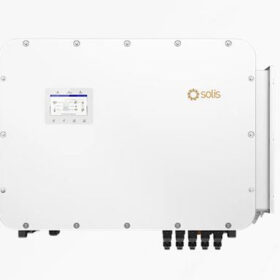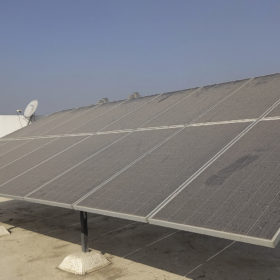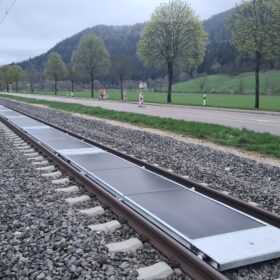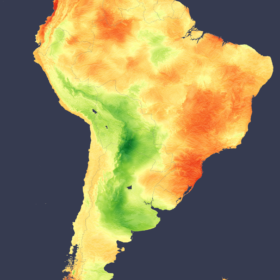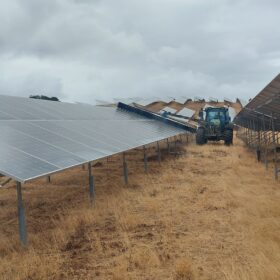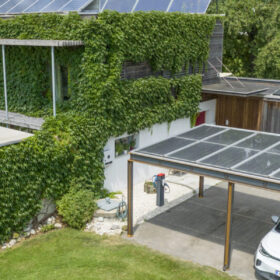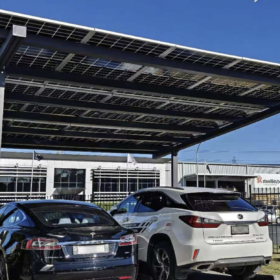Solis launches new hybrid inverters for C&I solar
The Chinese manufacturer said its new product is the world’s largest wall-mounted hybrid inverter. The series includes three models, with AC outputs of 80 kW, 100 kW, or 125 kW.
South Korea fines solar operators, cancels 347 MW of renewable projects
South Korea’s Ministry of Trade, Industry and Energy (MOTIE) has fined eight solar operators for failing to comply with output curtailment orders and canceled licenses for 11 renewable energy projects totaling 347.4 MW. It did not say how much of the canceled capacity was solar.
Preventing soiling with surface textured photovoltaic dummies
Scientists in South Africa have used computational fluid dynamics to investigate whether a dummy panel, placed in front of a working PV panel, can mitigate soiling. They have tested this setup with various inclination angles, heights, and distances and have found that the dummies accumulated up to 58% more dust than the PV panels.
Swiss startup inaugurates removable PV plant on railway tracks
Swiss startup Sun-Ways says it has activated what it calls the world’s first removable solar plant on active rail tracks, with passenger trains set to run over the 18 kW installation from April 28.
Solar gains across Brazil and Caribbean despite above average rain
In a new weekly update for pv magazine, Solcast, a DNV company, reports that Southern Brazil and the northern Andes were irradiance hotspots during March, posting anomalies as high as 30% above the climatological average. The increase came despite intense rainfall causing flooding in other parts of South America.
Chemitek Solar launches new antistatic soiling mitigation coating
The Portuguese company said its new anti-soiling solution lasts for at least a year. It can be applied during routine cleaning operations by mixing it directly in the cleaning water.
Austria launches €60 million rebate program for rooftop PV in 2025
Austria has opened applications for its €60 million ($68.3 million) rooftop PV rebate program for 2025, with a second-round “Made in Europe” bonus offering 20% more funding for projects using European-made components, says OeMAG.
US solar industry to add 502 GW (DC) of capacity in next decade
Wood Mackenzie warns that policy uncertainty could significantly alter its projections for US solar industry growth. The research firm says the US solar industry will add 502 GW (DC) of capacity over the next decade, with annual installations surpassing 40 GWdc through 2035.
GoodWe unveils new solar carport
GoodWe BIPV has identified new applications for its Vela residential solar carport. The modular unit is gaining traction in rural and small commercial settings in Australia as an alternative to ground-mounted and rooftop PV systems.
Research shows how Japan’s PV market suffered from high feed-in tariffs
A team of researchers based in Japan and Sweden have found a correlation between higher feed-in tariffs and increased capital expenditures of solar projects in Japan. They suggest this may have led to a lack of incentive for developers to innovate or reduce costs, in turn inflating expenditure and hindering long-term market competitiveness.
